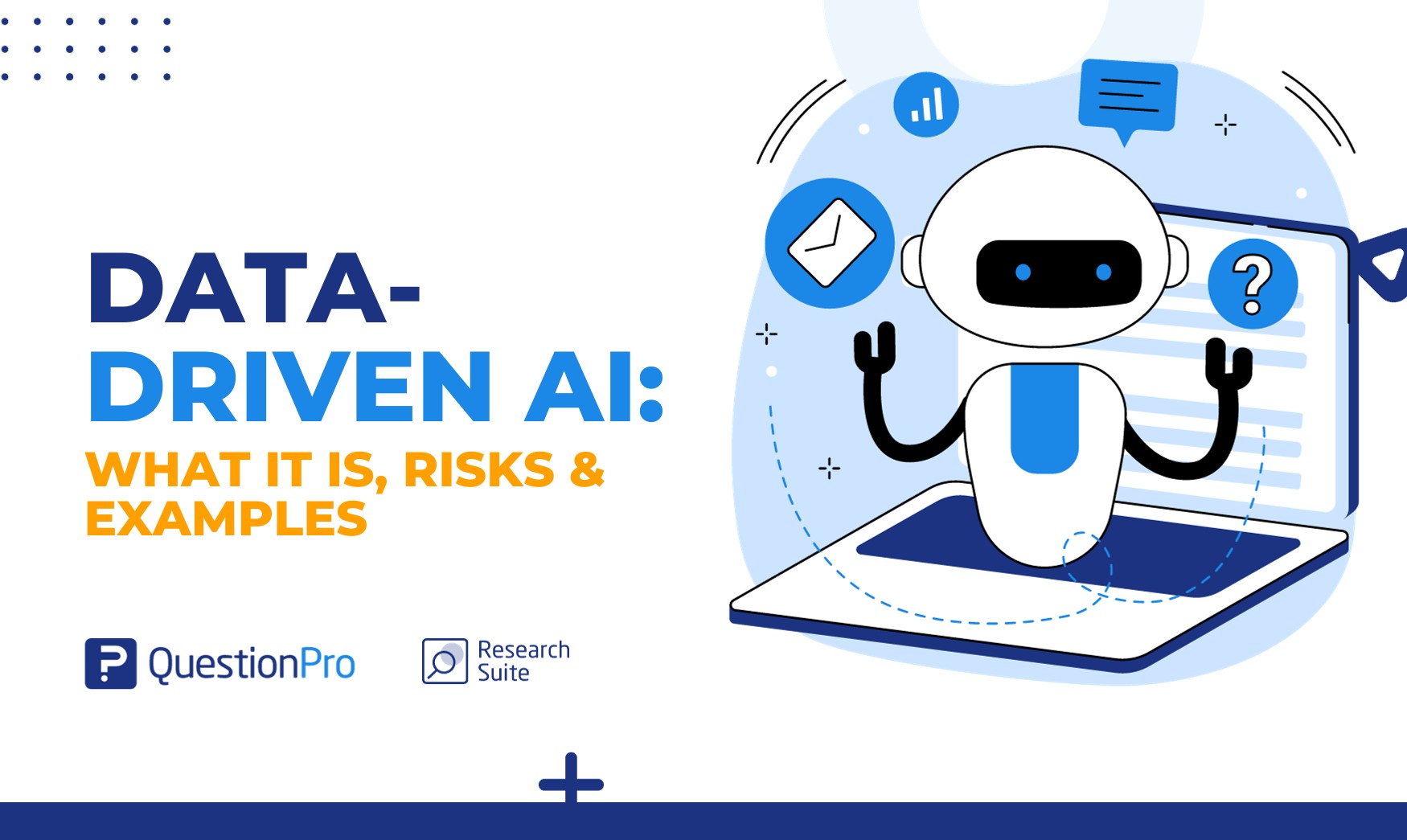Data-Driven AI: Revolutionizing Decision-Making Across Industries
In today’s fast-paced digital world, data-driven AI is transforming how businesses operate, make decisions, and strategize for the future. By harnessing the power of big data, machine learning, and artificial intelligence, organizations can make informed decisions with unprecedented accuracy and efficiency. This article explores the profound impact of data-driven AI on various sectors, the technology behind it, and the future prospects of this cutting-edge innovation.
Understanding Data-Driven AI
Data-driven AI leverages large datasets to train AI models, enabling them to recognize patterns, predict outcomes, and make decisions. Unlike traditional AI systems that rely on predefined rules, data-driven AI evolves and improves over time as it processes more data. This dynamic approach makes it highly adaptable to the ever-changing demands of modern industries.
How Data-Driven AI Works
At its core, data-driven AI involves collecting, analyzing, and interpreting vast amounts of data. The process can be broken down into several key steps:
- Data Collection: Organizations gather raw data from various sources, including sensors, social media, and transaction records. The quality and quantity of this data are crucial for the AI model’s success.
- Data Processing: After collection, data is cleaned, organized, and transformed into a format suitable for analysis. This step involves addressing missing values, outliers, and other inconsistencies.
- Model Training: Machine learning algorithms analyze the processed data to train AI models. During this phase, the AI learns to recognize patterns and relationships within the data.
- Prediction and Decision-Making: Once trained, the AI model uses new data inputs to make predictions and decisions. These predictions improve continually as more data becomes available.
- Feedback Loop: The AI model regularly updates with new data, ensuring it remains accurate and relevant over time. This feedback loop is essential for maintaining the AI system’s effectiveness.
Impact of Data-Driven AI on Various Industries
Healthcare
In the healthcare sector, data-driven AI is revolutionizing patient care, diagnostics, and treatment planning. By analyzing patient data, AI systems can predict disease outbreaks, identify at-risk individuals, and suggest personalized treatment plans. For instance, AI algorithms can detect early signs of diseases like cancer from medical images, improving the chances of successful treatment.
Moreover, data-driven AI enhances drug discovery by analyzing vast datasets to identify potential drug candidates. This accelerates the development process, bringing new treatments to market faster than ever before.
Finance
The financial industry also benefits significantly from data-driven AI. AI-powered algorithms analyze market trends, predict stock prices, and optimize investment portfolios. By processing large volumes of financial data, these systems identify profitable opportunities and minimize risks.
In addition to investment management, data-driven AI transforms fraud detection. AI models quickly identify unusual patterns in transaction data, flagging potential fraudulent activities before they cause significant damage. This proactive approach helps financial institutions protect their customers and maintain trust.
Retail
Retailers leverage data-driven AI to enhance customer experiences and optimize operations. By analyzing customer behavior data, AI systems recommend products, personalize marketing campaigns, and predict future purchasing trends. This level of personalization not only boosts sales but also fosters customer loyalty.
Inventory management is another area where data-driven AI excels. By predicting demand based on historical sales data and external factors like weather and holidays, AI systems ensure that retailers maintain optimal stock levels, reducing both shortages and overstock situations.
Manufacturing
In the manufacturing sector, data-driven AI drives efficiency and innovation. AI-powered systems monitor production lines in real time, detecting anomalies and predicting equipment failures before they occur. This predictive maintenance reduces downtime and extends the lifespan of machinery, leading to significant cost savings.
Furthermore, data-driven AI enables manufacturers to optimize supply chains by predicting demand, identifying bottlenecks, and suggesting improvements. This results in faster production times, lower costs, and higher customer satisfaction.
Transportation
The transportation industry is undergoing a transformation thanks to data-driven AI. Autonomous vehicles, powered by AI, are poised to revolutionize how goods and people are transported. These vehicles use data from sensors, cameras, and other sources to navigate roads, avoid obstacles, and make split-second decisions.
In logistics, data-driven AI optimizes route planning, reduces fuel consumption, and improves delivery times. By analyzing traffic patterns, weather conditions, and other variables, AI systems ensure that goods are delivered in the most efficient manner possible.
The Future of Data-Driven AI
As data-driven AI continues to evolve, its impact on industries will only grow. The integration of AI with other emerging technologies, such as the Internet of Things (IoT) and blockchain, will create new opportunities for innovation and efficiency.
Ethical Considerations
However, the widespread adoption of data-driven AI also raises important ethical questions. Businesses and policymakers must address issues such as data privacy, algorithmic bias, and the potential for job displacement to ensure that the benefits of AI are realized while minimizing its risks.
Continuous Learning and Adaptation
The success of data-driven AI relies on its ability to continuously learn and adapt. As more data is generated and processed, AI systems will become even more sophisticated, offering deeper insights and more accurate predictions. This ongoing evolution will enable organizations to stay ahead of the competition and respond to changing market conditions with agility.
Conclusion
Data-driven AI represents a fundamental shift in how businesses operate and make decisions. By leveraging the power of data, organizations can unlock new levels of efficiency, innovation, and customer satisfaction. As AI continues to advance, its impact on industries will be profound, driving the next wave of digital transformation.


